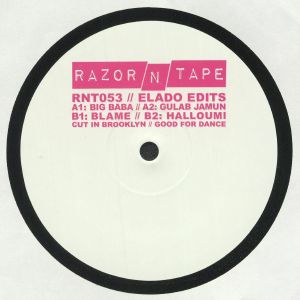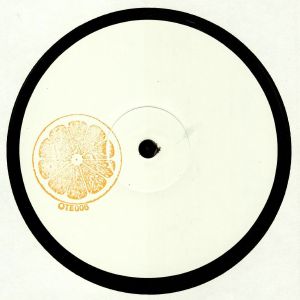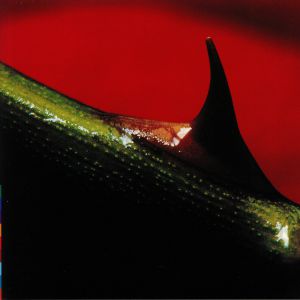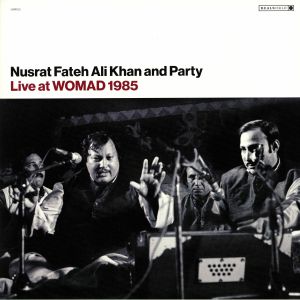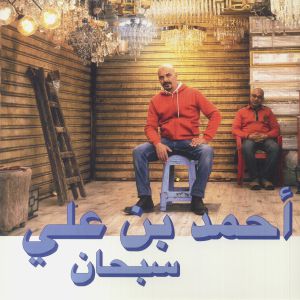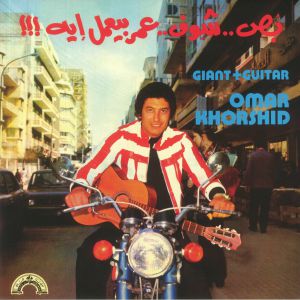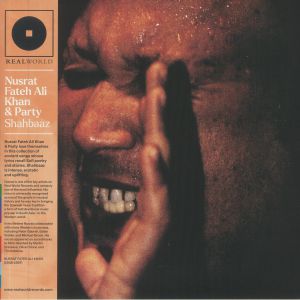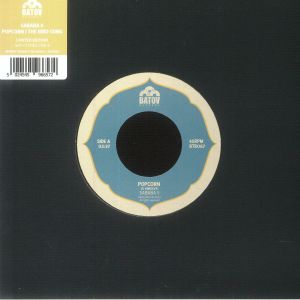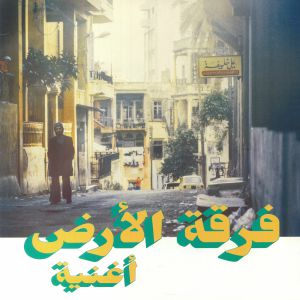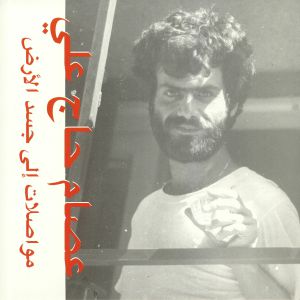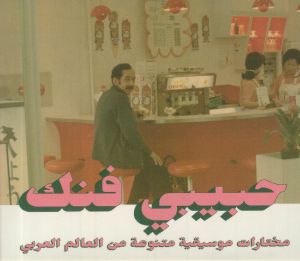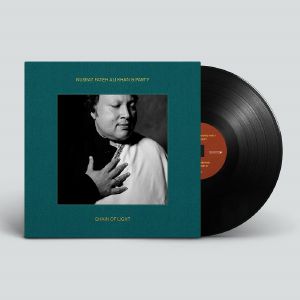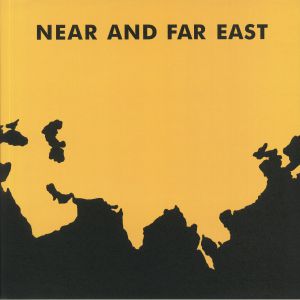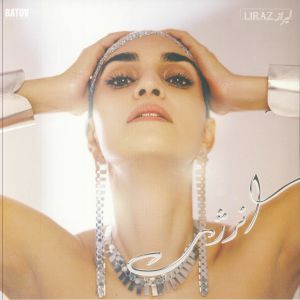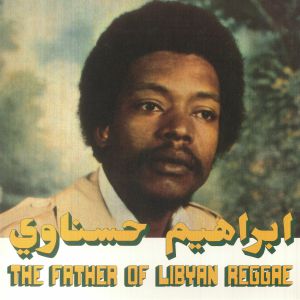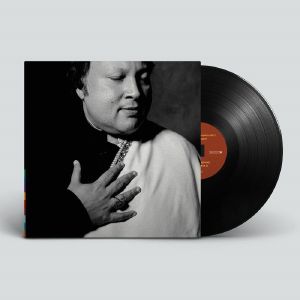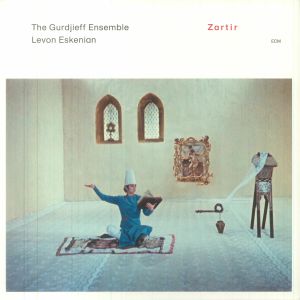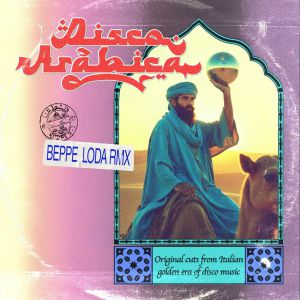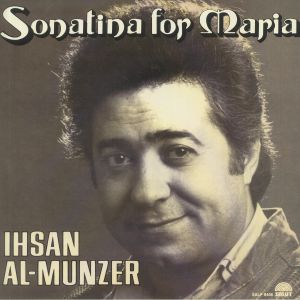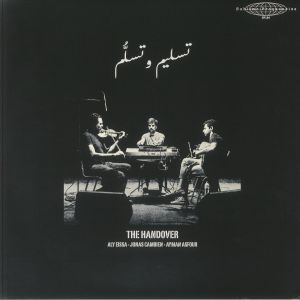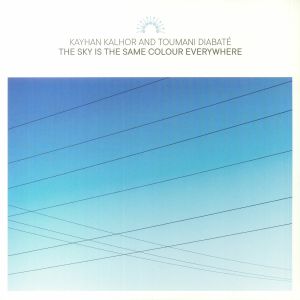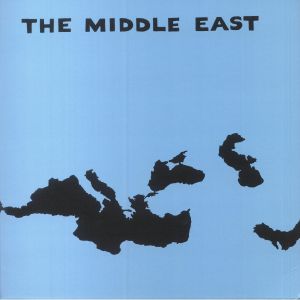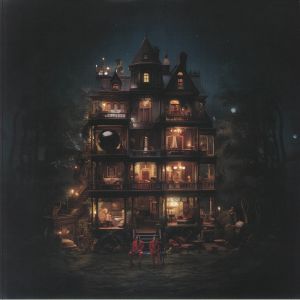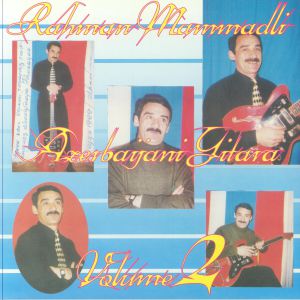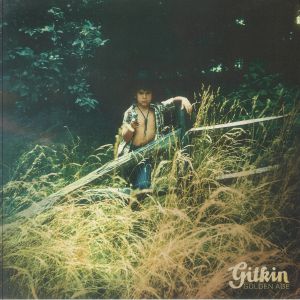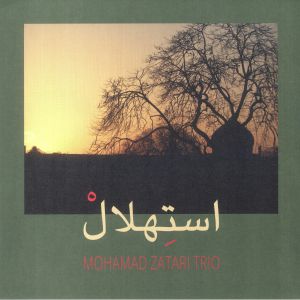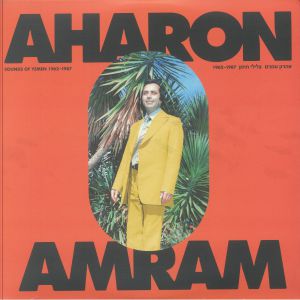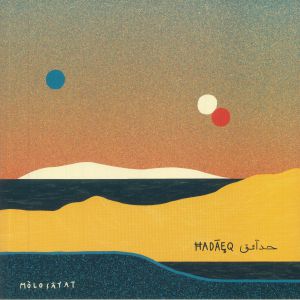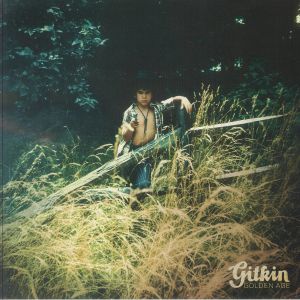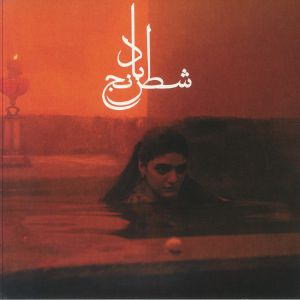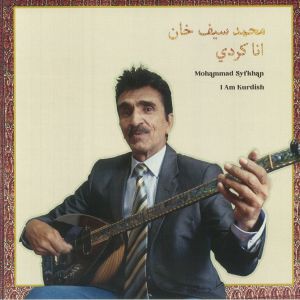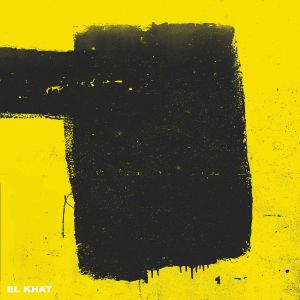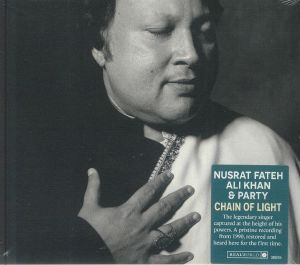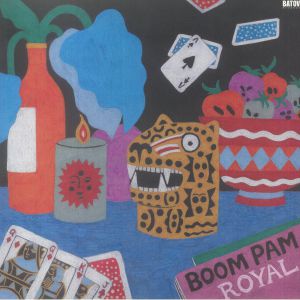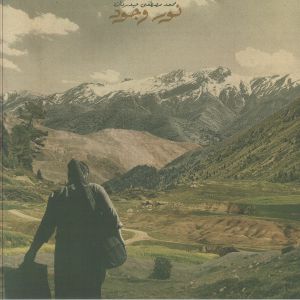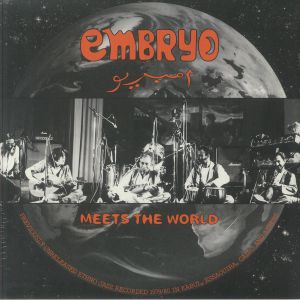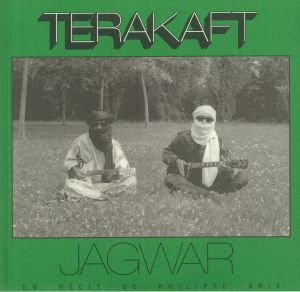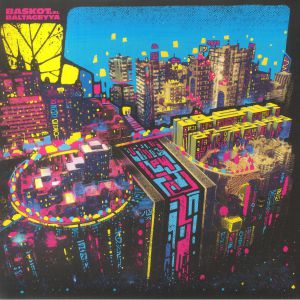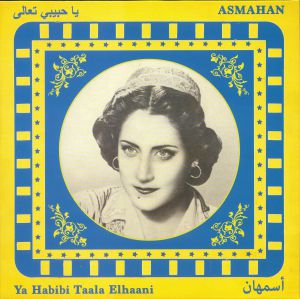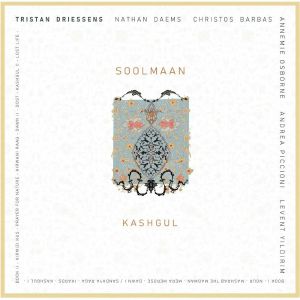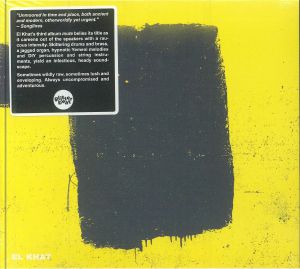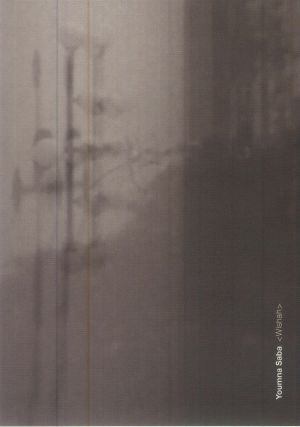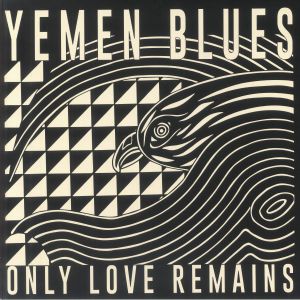Filter
Genre
Artist
Label
Featured
Release Title
Price
Tags
Tags: Middle Eastern
Products tagged as Middle EasternReview: Antal has already been dropping the worldly beats on this EP which is a fine stamp of approval for Israeli DJ and collector Elado. This marks his debut on the label having won plenty of fans for his offering on Eddie C's cult Red Motorbike. The music take its cues from all over the planet - Africa, India and the Middle East - and brims with disco joy, funk richness and plenty of earthly soul. 'Big Baba' is a classy party starter with good time feels, 'Gulab Jamun' is a foreign language acid laced love song and 'Blame' is synth heavy disco funk.
… Read more in stock $17.22
Review: After an 18-month hiatus, the admirable Orange Tree Edits series returns via a first re-edit outing from former Nail Shop artist Moving Still (real name Jamal Sulaimani). Like many of the label's releases, the four reworks on show are undeniably exotic, with Sulaimani delivering revisions of exotic Arabic and Middle Eastern dancefloor workouts from the '80s and '90s. Check for example the raw, Italo-style analogue electronics, jacking machine beats and drifting Arabic synthesizer lines of "I'll Tell Ya For A Tenner", or the melodious, life-affirming Middle Eastern synth-pop bliss of head-in-the-clouds gem "Ah Stop". Arguably best of all though is opener "Bint Al Sa7ara", a druggy stomper where snake charmer style leads lines and North African vocals ride a seriously druggy, arpeggio-driven groove.
… Read morePlayed by: Juno Recommends Disco
in stock $13.88
Played by: Juno Recommends International
in stock $29.42
Played by: Juno Recommends International
in stock $29.42
in stock $18.32
in stock $31.93
in stock $29.42
Review: Leading Tel Aviv groove unit Sababa 5 are back in action with another crisply executed missive of psyched-up delights to get adventurous parties freaking out in all the right ways. The four-piece have earned their stripes backing singers such as Gili Yalo, Ester Rada and Liraz Charhi, but here they go in hard on the instrumental with two old favourites given a distinctive new twist. 'Popcorn' sounds like you've never heard it before thanks to an offbeat rhythm section backing up that classic riff. Meanwhile 'The Birdie Song' gets embellished with actual birdsong and guest player Matan Caspi playing a darbuka drum, hitting the spot between novelty and serious musical chops in style.
… Read more in stock $14.16
Review: Habibi Funk present a legendary Lebanese work from Issam Hajali's group Ferkat Al Ard. This groundbreaking release from 1978 is a truly international affair, as Arab, jazz, folk and Brazilian styles criss-cross with flair under the arrangement guidance of Ziad Rahbani. The sound moves between pop and psych to touches of bossa nova and tropicalia. For diggers who have been after this record for some time, it's worth noting the band insisted on two tracks being excluded which were on the original version, but they have been replaced by the equally stunning 'Juma;a 6 Hziran'. This is a gem of Lebanese musical history, and a quintessential release in the ever-essential research undertaken by Habibi Funk.
… Read morePlayed by: Juno Recommends Funk
in stock $29.42
Played by: Ex-Friendly (Truth & Lies Music), DJ Kobayashi
in stock $27.21
VARIOUS
Cat: HABIBI 015CD. Rel: 12 Aug 21
International
Review: Since launching a few years back, Jannis Sturtz's Habibi Funk label has done a terrific job in sourcing and reissuing generally brilliant music from North Africa and the Middle East. The label's second multi-artist compilation does a good job in proving this point by offering up a pleasingly eclectic range of "historic popular music from the Arab world". There's much to enjoy, from the Steely Dan-esque West Coast warmth of Douaa's 'Haditouni' and the heavy psych-funk of 'Ahl Jedba' by Fadoul, to the synth-sporting riff on the Bee Gees' 'Staying Alive' that is Najib Al Housh's 'Ya En Daly', and the slow motion, reggae-driven sunshine pop of Ibrahim Hesnawi's 'Tendme'.
… Read morePlayed by: AfroBase (Radio Chart), Juno Recommends International
in stock $15.83
in stock $16.38
Chain Of Light (limited LP + booklet + MP3 download code)
Cat: LPRW 256X. Rel: 19 Sep 24
International
Review: Nusrat Fateh Ali Khan's Chain of Light is a rediscovered gem, presenting four pristine recordings from April 1990. Found in the Real World tape archives, these tracks capture Nusrat at a pivotal moment, on the cusp of global recognition. Opening with 'Ya Allah Ya Rehman,' the album showcases Nusrat's voice in its prime. The uptempo tabla and harmonium groove give way to Nusrat's otherworldly cry, creating an atmosphere of spiritual adoration. The slower tempo of 'Aaj Sik Mitran Di' allows Nusrat's sargam to shine, weaving through the harmonium melody before the hand claps accelerate, lifting his vocals to new heights. The standout track, 'Ya Gaus Ya Meeran,' an Urdu qawwali Nusrat had never recorded before, reveals his unparalleled talent. Rashid Ahmed Din notes its complexity and Nusrat's ability to compose over challenging patterns, opening the song for future interpretations. Produced by Michael Brook and mixed by Craig Conard, the recordings reflect Nusrat's willingness to experiment beyond traditional sounds. Brook's comments on Nusrat's innovative use of the studio as an instrument highlight the creative dynamism of these sessions. Chain of Light not only cements Nusrat Fateh Ali Khan's legacy as a master of qawwali but also introduces listeners to the profound spiritual and musical depth of his artistry.
… Read more in stock $33.03
in stock $38.86
Review: Liraz's latest release Enerjy is a potent fusion of cultural activism and musical prowess. With four tracks sung in Farsi, she ignites a musical revolution in the Middle Eastern landscape. Collaborating with Uri Brauner Kinrot, the album pulsates with raw energy and a fervent call for global harmony. Liraz's vocals exude passion and purpose, serving as a conduit for positivity and light in tumultuous times. Enerjy is not just a collection of songs; it's a bold statement of resilience and hope, highlighting Liraz's unwavering commitment to bridging cultural divides through the power of music.
… Read morePlayed by: Juno Recommends International
in stock $17.50
Cat: HABIBI 024LP. Rel: 05 Oct 23
International
Review: Habibi Funk does a great job of introducing or reacquainting the world with niche but rich musical scenes from all across the Arab world. This latest album takes us to the reggae sounds of Libya and specifically the work of Ibrahim Hesnawi, who is known amongst those who know as "The Father of Libyan Reggae." He draws on roots, dub and dancehall with a distinctive Arabic twist that plots a line from Tripoli to Kingston. This artist is so revered for the way he fused the those two musical worlds so effortlessly while colouring it with elements of jazz, soul and disco. An enchanting album that was first recorded more than 40 years ago.
… Read morePlayed by: Juno Recommends International
in stock $31.65
Review: Chain of Light, a newly uncovered gem from Nusrat Fateh Ali Khan, showcases his raw vocal power and mastery of the Sufi qawwali tradition. Recorded in 1990, just before his groundbreaking fusion album Mustt Mustt, this album captures Khan in his prime, performing four traditional qawwalis that had remained hidden for decades. The album opens with 'Ya Allah Ya Rehman', where Khan's vibrato-rich vocals ride a driving tabla and harmonium melody, exuding a deep sense of yearning. His party of singers provides harmonic support, amplifying the piece's emotional intensity. The second track, 'Aaj Sik Mitran Di', moves with more freedom in tempo, highlighting Khan's exceptional ability to weave his voice through slow melodies and then accelerate into breathtaking, rapid-fire sargam passages. 'Ya Gaus Ya Meeran', takes you on a spiritual journey. Unpredictable tempo changes and shifting rhythms leave Khan's voice as the constant force, building to a powerful crescendo. Far from a mere archival release, Chain of Light reinforces Khan's legacy as a qawwali genius at the height of his artistry.
… Read morePlayed by: Juno Recommends International
in stock $29.42
Review: The third album from Levon Eskenian's remarkable ensemble is its most adventurous to date. As well as reclaiming the music of esoteric teacher G. I. Gurdjieff for folk instrumentation, Zartir situates Gurdjieff in a tradition of Armenian bards and troubadours including Ashugh Jivani, Baghdasar Tbir and the legendary Sayat-Nova. In parallel, an emphasis on pieces for sacred dance reaches its apex in The Great Prayer, an entrancing collaboration between the Gurdjieff Ensemble and the National Chamber Choir of Armenia, which draws upon ritual music of multiple faiths. Arranger Eskenian says, "I believe The Great Prayer is more than a mere 'composition'. It is one of the most profound and transformative pieces I have encountered in Gurdjieff's work." Zartir was recorded in Yerevan in 2021 and mixed and completed in Munich in November 2022 by Levon Eskenian, Tigran Kuzikyan, and Manfred Eicher.
… Read more in stock $28.60
Cat: MD 33008. Rel: 24 Feb 25
Disco/Nu-Disco
Review: After a decade since the success of Obscure Cuts: Italian Arabic Disco, legendary DJ Beppe Loda returns with a new EP. This time he has assembled a collection featuring carefully selected Middle-Eastern-influenced Italian disco gems from the genre's golden era. This superb selection offers a fresh take on obscure tracks that highlight Loda's signature style. So, step onto a magical carpet and soar through this release here you will be lost amongst or gazing into wild rhythms and rich cultural influences. Fans of Loda's distinctive blend of disco and Middle Eastern sounds will be delighted by this exciting return to form, as well as what it does to your record crate credentials.
… Read more in stock $28.04
in stock $18.16
Played by: Juno Recommends International
in stock $34.42
The Sky Is The Same Colour Everywhere (2xLP + insert + MP3 download code)
Cat: LPRW 238. Rel: 04 May 23
Folk/Americana
Played by: Juno Recommends International
in stock $32.19
Played by: Juno Recommends International
in stock $48.02
Horror Vacui (heavyweight vinyl LP + insert + MP3 download code)
Cat: LPADR 77. Rel: 02 May 24
International
Review: 9T Antiope's Horror Vacui intersects where the eerie tale of a mysterious house mirrors the complexities of human existence lie. Nima Aghiani and Sara Bigdeli Shamloo masterfully blend elements of Iranian heritage with contemporary sonic exploration, delving into themes of identity, displacement and the relentless passage of time. Through sparse instrumentation and haunting vocals, the duo navigates the liminal spaces between past and present, old and new, creating an atmospheric soundscape that is both unsettling and captivating. The title track, with its subtle shifts in language and texture, encapsulates the album's exploration of memory and the fear of forgetting. Horror Vacui is an album that defies easy categorisation, balancing on the precipice between structure and formlessness, heaviness and softness. It challenges listeners to confront their own fears and uncertainties, urging them to embrace the space between dualities. In doing so, it offers a profound meditation on the nature of existence itself, leaving a lasting impact on the listener's psyche and memory.
… Read morePlayed by: Juno Recommends International
in stock $25.26
Review: Born on the vibrant streets of Baku, Azerbaijani's gitara culture is a mesmerising fusion of indigenous traditions and global influences. Through eras of the oil boom and Soviet rule, the electric guitar has become a powerful symbol of cultural expression and Rahman Memmedli is a legendary figure who revolutionised this sound with innovative techniques and impassioned performances. Drawing inspiration from mugham music, Memmeddli's compositions resonate with soul-stirring melodies and electrifying solos and Azerbaijani Gitara Vol. 2 promises to impress listeners with its depth, diversity and unbridled passion, taking you on a journey through the heart and soul of Azerbaijan's musical heritage.
… Read morePlayed by: Juno Recommends International
in stock $24.70
Review: Brooklyn-born, New Orleans-based multi-instrumentalist Gitkin delivers a rich fusion of global sounds on Golden Age, his latest ten-track album. Known for his guitar-driven style, Gitkin blends the rhythms of cumbia, North African, and Middle Eastern music, creating a sonic journey that feels both expansive and deeply rooted. As the frontman of The Pimps of Joytime, a staple in the festival circuit, his influence on the soul-funk scene is undeniable. From Bonnaroo to Electric Forest, Gitkin has built a reputation for electrifying live performances. Beyond his own projects, he's produced for artists like Corey Henry, Bernard Purdie and Cedric Burnside, whose Benton County Relic earned a Grammy nomination for Best Traditional Blues Album. With Golden Age, Gitkin further explores the intersections of global music traditions, weaving his soulful guitar into a captivating tapestry that speaks to his wide-ranging influences.
… Read morePlayed by: Juno Recommends International
in stock $25.26
in stock $29.70
Played by: Juno Recommends International
in stock $23.88
in stock $11.66
Review: Yemenite music in Israel is a uniquely Middle-Eastern style born from the immigration of Yemenite Jews to Israel. Initially religious and ceremonial, the music featured separate male and female songs accompanied by drumming on olive oil tin cans. Aharon Amram, born in Sana'a, Yemen, immigrated to Israel as a child and became a central figure in this genre. From the 1960s onward, he released numerous records on Sounds of Yemen in which he blended traditional religious songs with his own secular compositions, Western electric instruments and modern arrangements. This double LP showcases Amram's diverse catalogue and undying influence on contemporary Mizrahi.
… Read morePlayed by: Juno Recommends International
in stock $34.98
Review: Lebanese singer Pol Seif has linked with various European instrumentalists for this Molo Sayat project , which has its base camp around the Med. The band compose their material in Arabic, Italian and Romani languages and their first release on Zephyrus Records oozes a soul soothing calmness and plenty of colourful folk sounds. The musicianship is second to none as saxophone, clarinet, double bass and trumpets are all blended into one smooth and beautiful soundscape as Serf's voice adds another layer of magic. Whether jazzy and upbeat such as 'Kai Zhas Seka' or slow and mournful like 'Adame' these are all essential sounds.
… Read morePlayed by: Juno Recommends International
in stock $17.28
Played by: Juno Recommends International
in stock $28.04
Review: There are back stories, and then there's Chess of the Wind. Sheila Gharachedaghi's remarkable movie soundtrack wouldn't be here today if it weren't for the fact the movie itself - a 1976, pre-revolutionary Iranian queer-gothic-class-horror masterpiece - had been banned in its homeland and presumed lost forever, until a copy turned up in an antique shop. That was 2014, and six years later it was re-released, having benefited from restoration by the Martin Scorsese Film Foundation. A remarkable insight not just into a society long since lost, but its pitfalls and problems, to accompany this Gharachedaghi combines classical Persian instrumentation and atonal dissonance, traditional melodies and experimental moods for a score that's just as much of a landmark.
… Read more in stock $29.42
Review: This Kurdish/Syrian singer and bouzouki player began his music career in 1980 while studying nursing. After earning his degree in 1983, he moved to Raqqa, Syria, and formed The Al-Rabie Band, with whom he performed Kurdish, Arabic, Turkish and Western songs. In 2011, the Syrian war forced his family to flee after his son was killed by ISIS so he resettled in Ireland, where he used music to connect with the local community, performing at various events and collaborating with Irish artists. His album I Am Kurdish blends Middle Eastern and North African music and he says is a way of spreading joy, love and happiness.
… Read more in stock $24.98
Played by: Juno Recommends International
in stock $24.16
in stock $9.71
Review: Tel Aviv-based band Boom Pan marks their 20th anniversary with an album that mixes up cinematic atmospherics and high-powered surf rock. It is their first for the Batov Records label and has eight tracks of global sonic tripping that go from Middle Eastern exotica to scores to an imagined Spaghetti Western and on to sandy beach parties by the Mediterranean. It's all made with a mix of catchy guitar riffs, tuba basslines and big drums that immerse you in engaging sounds and great musicianship that is always pushing at the traditional genre boundaries.
… Read morePlayed by: DJ Kobayashi
in stock $24.42
Played by: Alexis Le-Tan
in stock $24.42
in stock $31.37
Review: Embryo, the music collective from Germany, rekindle the flaming title of "one of the most important German jazz-rock bands from the 1970s" with a brand new mini-LP on Sonarama. A neat collection of unreleased ethno-jazz from 1979-80, its rediscovery in the archives captures the band's formerly-only-hazily documented journey across Afghanistan, North Africa and the Near/Middle East, documenting the German supertroupe's late-career collabs with regional outfits, such as the Kabul Radio Orchestra and players from Eritrea, Syria, Morocco and Iraq. Blending trad melodies with free-flowing improv, this touring jazz explosion flaunts the many scalene modes native to such places; their provenance is esoteric and difficult to track down.
… Read more in stock $24.16
in stock $41.08
Review: Ammar El Sherei's 1976 instrumental gem is one of those cult albums that record collectors love to have in their arsenal to, well, show off with. It finds the legendary Egyptian composer reinterpreting seven classics by Mohamed Abdel Wahab and in doing so he waves traditional Arabic melodies into funky arrangements and electric keyboard experimentation. This hypnotic fusion highlights El Sherei's unique perspective and knack for bridging heritage and innovation. Curated and annotated by Arabic music expert Mario Choueiry from Paris' Institut du Monde Arabe, this reissue features newly remastered audio and original Soutelphan artwork so is a no-brainer for fans of vintage yet adventurous Arabic grooves.
… Read more in stock $34.42
Sovereign Murders (gatefold heavyweight vinyl LP + booklet)
Cat: PIR 3572LP. Rel: 01 Jul 22
International
in stock $18.42
in stock $26.93
in stock $27.49
in stock $37.48
in stock $33.30
in stock $13.31
in stock $13.05
Only Love Remains (limited gatefold LP in embossed sleeve)
Cat: YBI001 LP. Rel: 06 Nov 24
International
Review: 'Only Love Remains' is Yemen Blues' boldest album to date and one that marks a departure from their previous releases. Created from finished compositions by vocalist Ravid Kahalani, the band spent two weeks in the studio with minimal ideas and simply allowed creativity to flow. The result is a powerful fusion of each member's unique cultural influences co-produced by bassist Shanir Ezra Blumenkranz. The album blends direct emotional connection with spiritual depth and so offers both enlightenment and questioning. Amid global political and cultural polarisation, Yemen Blues leads by example and makes for an inclusive celebration of unity and love through music.
… Read more in stock $21.37

 USD
USD





